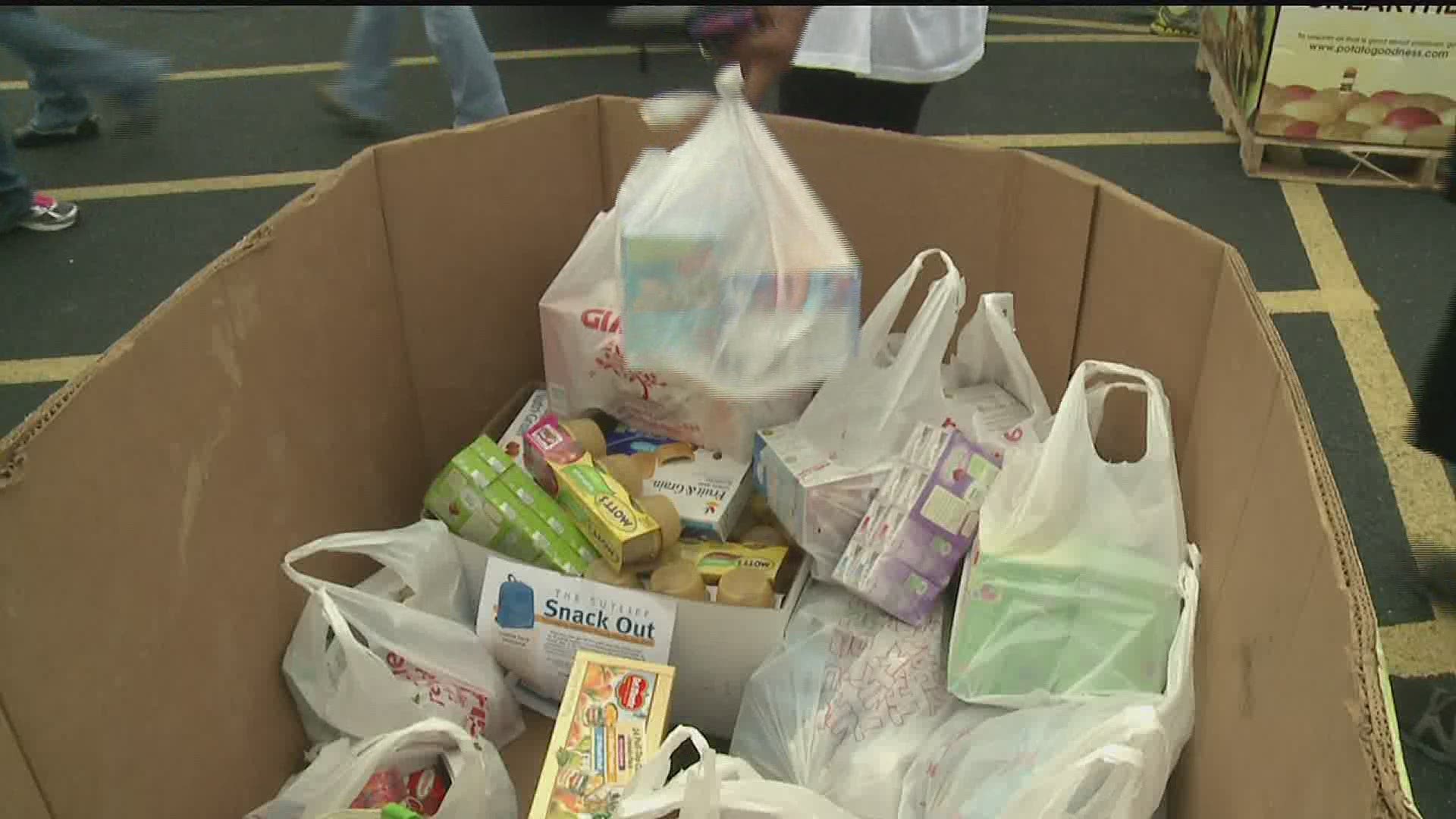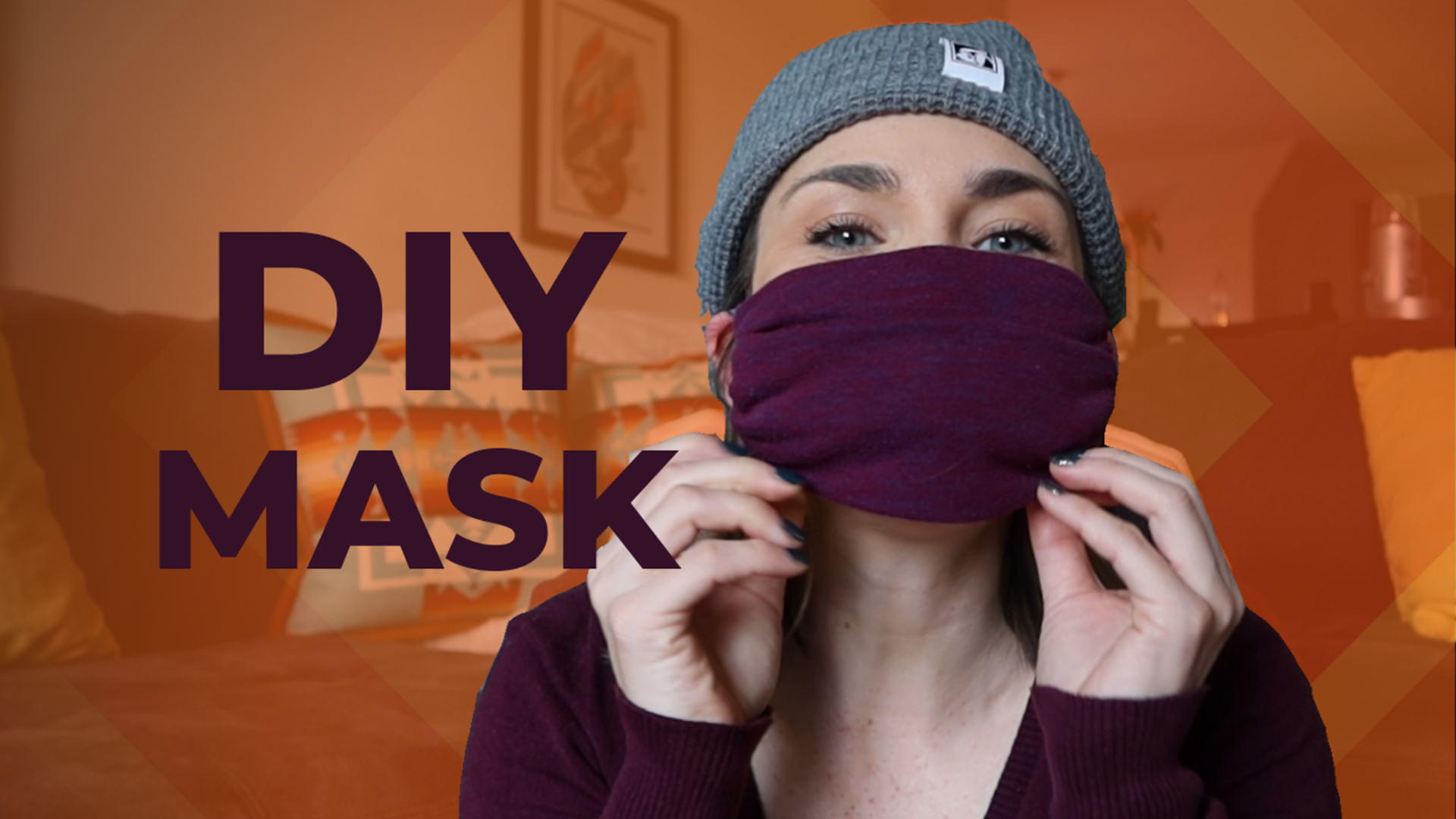HOUSTON — In a matter of months, the coronavirus pandemic has created unprecedented unemployment rates, shortages and increased demand on the national heath care system.
At least 276,000 people in the United States have tested positive for coronavirus, and officials believe the number of people who have been infected is far higher.
In response, organizations and individuals are stepping up to help others during this difficult time.
While you may be stuck at home, there are simple ways you can also make a difference while staying safe and practicing social distancing.
Donating money
While can goods and other in-kind donations are helpful, what many nonprofit organizations need to keep their operations afloat is money.
There are dozens of local and national groups working closely with those most impacted by the pandemic. These are just a few:
- Houston Food Bank feeds thousands of residents each year directly and through its community partnerships. Text 'KHOUMEALS' to 41444 or click here make a donation.
- Interfaith Ministries continues to bring Houston residents all faiths together for community services. They're helping the city's most vulnerable through Meals on Wheels and other resource programs.
- Virtual Tip Jars is just one of many websites helping restaurant and bar patrons nationwide send money directly to their favorite bartenders, waiters and other hospitality workers.
- Houston Humane Society is helping the pets of families economically impacted by the coronavirus through its pet food pantry and other services. Find information on monetary and in-kind donations here.
- Restaurant Workers’ Community Foundation is giving money directly to impacted workers as well as many local organizations.
- COVID-19 Solidarity Response Fund was created through a partnership between the World Health Organization and UNICEF. It allows both organizations to fund projects to help the worlds most vulnerable communities worldwide.
Treating frontline workers to lunch
Nurses, doctors, paramedics, police officers, firefighters and other essential workers are putting in long hours— as well as putting themselves at risk of contracting coronavirus— to protect their communities.
Let them know that their efforts have not gone unnoticed with a little appreciation. It can be as simple as having a couple pizzas or a catered lunch sent to their office or agency.
Of course, be sure to call and ask permission ahead of time.
Reaching out to senior neighbors
Anyone can become infected with the coronavirus, but senior citizens are most at risk for experiencing serious health complications. During this time, it's important we protect the physical and emotional well-being of our older neighbors.
Take the time to call or video chat with them, making sure they have all they need. You can offer to go grocery shopping for them or other essential tasks.
Sometimes, just having someone to talk to or simply knowing that others are thinking about you, can have a positive impact on a person's life.
Be a virtual social butterfly
Social distancing doesn't have to be social isolation.
It can be difficult for many of us to fend off boredom, anxiety and even depression while we're separated from friends and family for an indefinite amount of time. Help keep people's spirits up by finding the time to socialize over the phone and online, especially if you can make it a group activity.
A lot of people are hosting Netflix watch parties, virtual happy hours and even virtual karaoke or game nights.
There are also many dance and other fun challenges being posted to social media platforms like TikTok and Instagram that can be done at home.
Making masks
New U.S. federal guidelines encourage people, especially those in areas hit hard by the spread of the coronavirus, to use rudimentary coverings like T-shirts, bandannas and non-medical masks to cover their faces while outdoors.
The purpose of this recommendation is to stop the spread of coronavirus, which researchers confirm is passable through breathing and talking.
Many have already dedicated their time at home to sewing and crafting masks for healthcare and other frontline workers, but with these new recommendations, your friends and neighbors could also benefit.
If you don't own a sewing machine, don't sweat it! Here's an easy how-to video:
Donating Blood
Hospitals are always in need of blood and with the COVID-19 crisis forcing most blood donation centers to shut down and people to stay inside their homes, most institutions are not getting the donations they typically would.
MD Anderson Cancer Center is one of those hospitals and says although several counties have issued stay-at-home orders, you are allowed to donate blood to their hospital.
American Red Cross Houston has several blood donation locations in the Houston area. Find a map of locations and hours here.
Adopt a pet
Despite 'stay home, work safe' orders, animal shelters throughout the Houston area taking in vulnerable creatures who are in need of a loving home.
Some facilities are becoming overwhelmed as pet adoptions have slowed down. If your situation allows it, adopting a pet could be a great way to help out while finding a new companion during isolation.
The Montgomery County Animal Shelter, Houston Pets Alive and BARC are just a few local facilities that have put special measures in place to protect individuals during the adoption process.
OTHER COVID-19 STORIES ON KHOU.COM
- 'Makeshift' face masks now recommended to help stop the spread of COVID-19
- 'Every single one of them smiled': 8-year-old makes cards for seniors not allowed visitors during pandemic
- Grandmother teaches 8-year-old to sew medical masks to donate
- Changes coming to Texas grocery stores in the next few weeks
- Houston's first responders take extra precautions during coronavirus pandemic
- Map: Keeping track of Houston-area coronavirus cases
- Houston women get creative in fight against coronavirus


